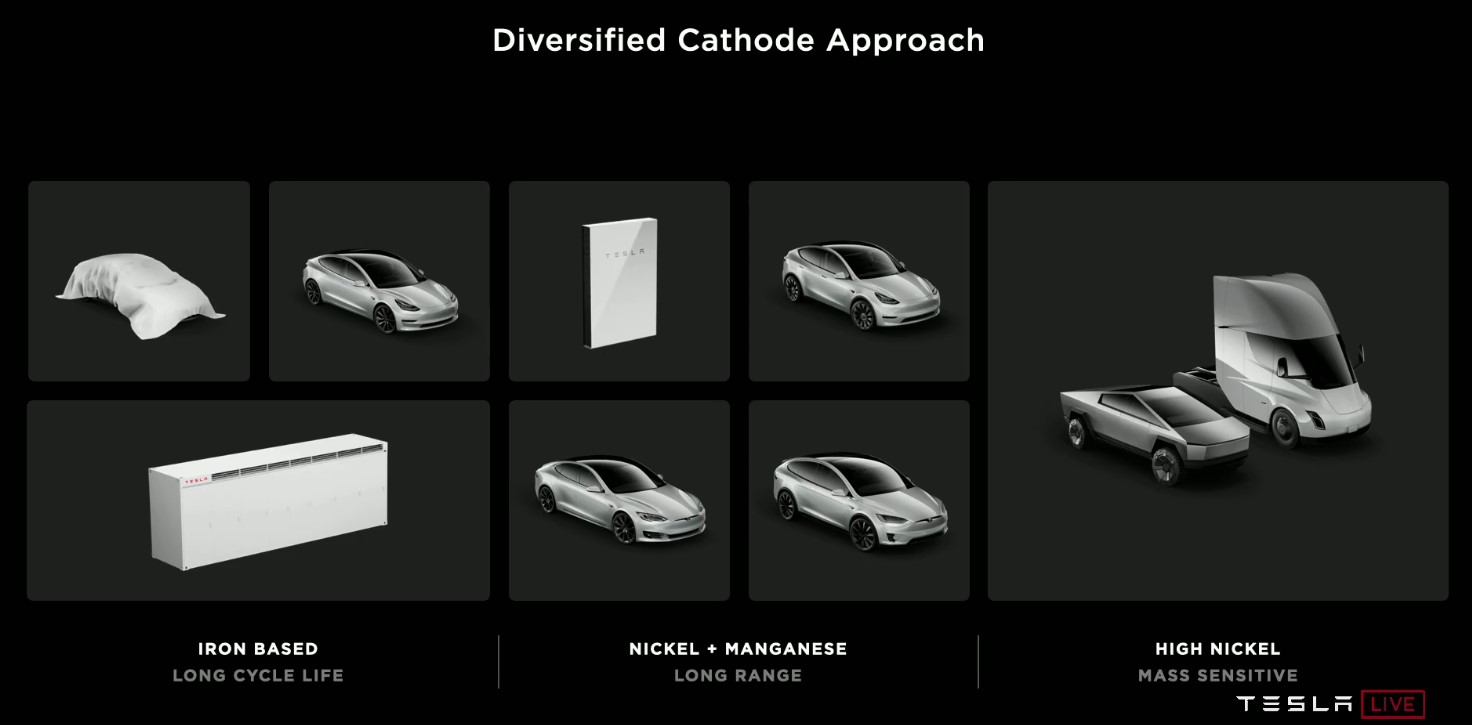Do You Know: Tesla will upgrade the battery cells in all of its standard-range vehicles.

Thursday, October 21, 2021 | Chimniii Desk
Key Points
Tesla is switching the battery chemistry in all of its standard-range electric vehicles to a lithium-iron-phosphate (LFP) cathode, the carmaker announced Wednesday in its third-quarter investor presentation. This strategy is presumably Tesla's way of increasing profit margins on its fully electric vehicles without necessarily increasing vehicle costs. Abuelsamid feels Tesla's shift is "definitely a good decision," as it will likely increase the company's bottom line. Taylor Ogan, CEO of Snow Bull Capital and a long-time Tesla bull, told CNBC, "LFP batteries are more affordable and safer." That is why iron-based batteries are already the battery of China, and they are sufficient for standard-range automobiles.
Advertisement
 Credit: Tesla Motors
Credit: Tesla MotorsTesla is switching the battery chemistry in all of its standard-range electric vehicles to a lithium-iron-phosphate (LFP) cathode, the carmaker announced Wednesday in its third-quarter investor presentation.
This strategy is presumably Tesla's way of increasing profit margins on its fully electric vehicles without necessarily increasing vehicle costs. Tesla has already been chastised for its erratic vehicle pricing.
At its factory in Shanghai, the company is already manufacturing vehicles using LFP chemistry. It distributes these vehicles throughout China, the Asia-Pacific area, and Europe.
According to materials researcher and consultant Roskill, China generally pushes the adoption of this sort of battery. According to the company, over 95% of LFP cathode manufacture occurs in China.
Tesla asked Model 3 reservation holders in the United States in September if they would accept a car with a battery made of LFP cells rather than the Nickel Cobalt Aluminum Oxide (NCA) cells previously used in Model 3 sedans delivered in North America.
"LFP has both good and negative trade-offs," according to Sam Abuelsamid, chief analyst at Guidehouse Insights. "It is substantially less expensive and requires no nickel or cobalt." Additionally, it is more stable, making it safer."
Advertisement
One significant disadvantage is that the cells are less energy dense, which means they have a lesser range per unit weight than conventional cells. Cold weather also has a greater effect on them, Abuelsamid explained.
Abuelsamid feels Tesla's shift is "definitely a good decision," as it will likely increase the company's bottom line.
According to Abuelsamid, several manufacturers like as Ford Motor and Volkswagen have showed interest in the battery chemistry for lower-priced cars. He added that it's also an attractive option for commercial vehicles such as delivery vans that don't require a multi-hundred mile range.
Taylor Ogan, CEO of Snow Bull Capital and a long-time Tesla bull, told CNBC, "LFP batteries are more affordable and safer." With this chemistry, you may charge your vehicle's battery to 100% without worrying about long-term degeneration. Additionally, these batteries are extremely easy to recycle. And responsibly obtaining raw materials for these is easier. That is why iron-based batteries are already the battery of China, and they are sufficient for standard-range automobiles."
CATL and BYD are the two largest manufacturers of these battery cells. Tesla has already announced that it is already acquiring batteries from CATL.
Tesla provided no other information about the decision, other than the investor deck stating that the company is "globally migrating to Lithium Iron Phosphate (LFP) battery chemistry."
Tesla did not respond quickly to a request for comment.
Advertisement